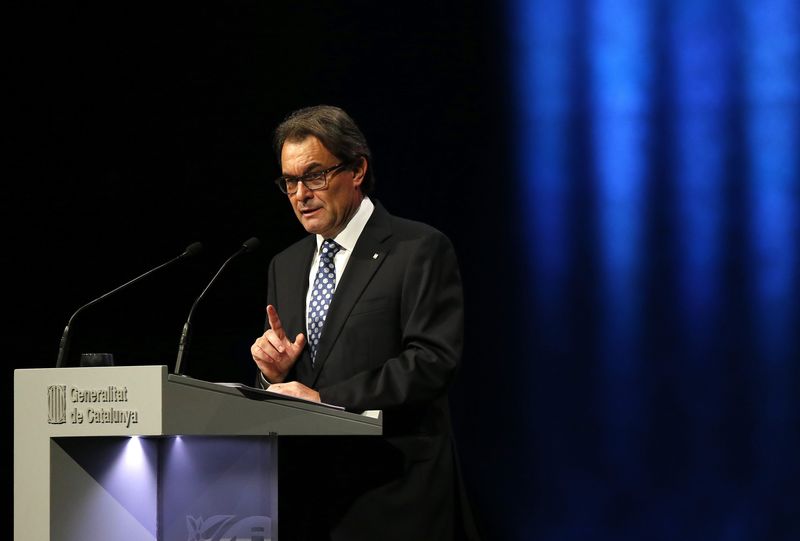MADRID (Reuters) - Catalonia's two main parties on Wednesday moved a step closer to calling a snap regional election they want to use as a proxy for a referendum on independence from Spain.
The region, which accounts for one fifth of Spain's economic output, went ahead with a symbolic independence referendum on Nov. 9 despite Prime Minister Mariano Rajoy blocking such a move in the courts and calling it illegal.
After the vote, Catalan leader Artur Mas, who has been sued for defying a court injunction not to hold it, said he was considering calling an early election if regional parties could unite behind a single banner in favour of independence.
Late on Tuesday, he outlined a plan to create a Catalan state within 18 months with the first step being to build a common electoral platform, uniting politicians.
Oriol Junqueras, leader of Catalonia's second-biggest party Esquerra Republicana de Catalunya (ERC), had initially opposed the offer but on Wednesday said Mas' plan was "a good starting point" that he was ready to discuss.
"We need to seek formulas that add up between all the political forces that want to move towards independence," he said.
While a formal agreement between Mas' centre-right Convergencia I Unio (CiU) and the leftist ERC could be weeks away, the suggestion that they could run together in an early election is a direct challenge to Rajoy and bodes ill for dialogue between the Catalan authorities and Spain's central government.
Rajoy, who had offered to hold talks with Catalonia on financial and tax issues and opened the door to a constitutional reform to resolve its political problems with Madrid, dismissed the idea of a snap election centred on independence as "a step to nowhere".
About 80 percent of the around 2.2 million who voted on Nov. 9 backed secession, but the turnout was little more than 40 percent, giving an inconclusive outcome dismissed by markets.

According to an opinion poll published earlier this week in El Mundo newspaper, if a regional election was held today, CiU would win with 23.8 percent of the vote, ahead of ERC with 22.1 percent.
(Reporting by Julien Toyer; Editing by Janet Lawrence)